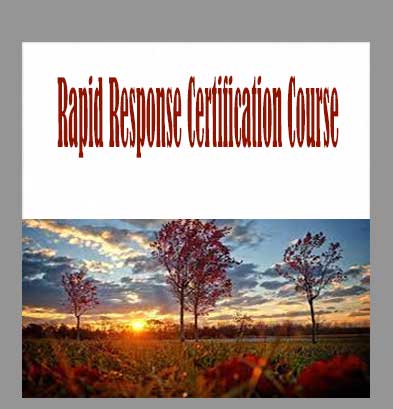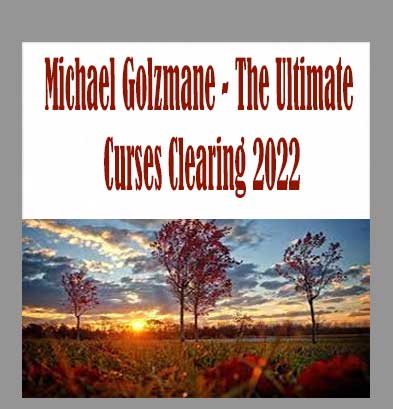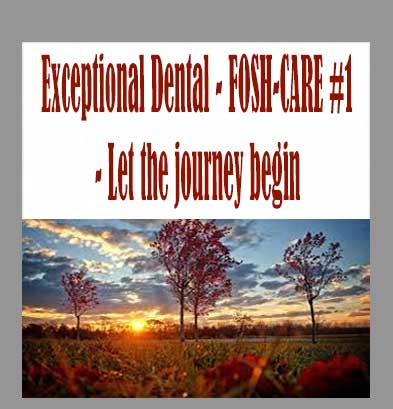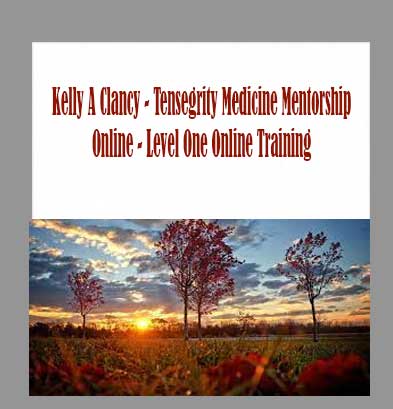
Description
Rapid Response Certification Course download , Rapid Response Certification Course review , Rapid Response Certification Course free
Rapid Response Certification Course
The hard truth is that healthcare clinicians need to be top-notch in their response to an acutely deteriorating patient. It can take just minutes to assemble a high-performing rapid-response team at the patient’s bedside to initiate lifesaving care.
When the call for a patient crisis or Code Blue hits, the skill set required demands a wide variety of expertise as you need to: apply pharmacology updates and the latest evidence-based guidelines, prioritize actions, execute immediate assessments, handle the difficult conversations, quickly recognize patient clues, skillfully perform lifesaving interventions, limit your own legal risks and so much more!
Elevate your critical knowledge and insights with our powerful Rapid Response Certification Course. Discover confidence in how to approach even the worst-case patient scenarios!
Harness the knowledge of a multidisciplinary panel of 15 rapid response/critical care/emergency authorities… from nurse practitioners, a critical care pharmacist, a respiratory therapist, a physician assistant, legal nurse consultants, and more!
Master the delivery of care to unstable, crashing patients and, most importantly, save lives!
Advance your skills before the next patient crisis hits!
Must-know topics include:
- Ways to Replace Fear with Courage and Action
- Strategies to Prioritize Actions for Subtle Clues of Impending Doom
- Initiating the Difficult Conversations When Resuscitation Won’t Change the Outcomes
- Deciphering Challenging Cardiac Cases to Prevent a Crisis
- Respiratory Emergencies: New Evidence on High Flow Nasal Cannula Use
- Rapid and Effective Assessment Techniques
- Current Guidelines for Medication Use & Late Breaking Literature
- Code Blue Training: Life Support Challenges
- Acute Abdominal Pain You Can’t Miss
- Worst Case Patient Scenarios
- Ways to Limit Legal Liability to Protect Yourself & Your License During an Emergency
- Sepsis & Septic Shock
- Life Threatening Diabetic Emergencies
- Neurocritical Care Med Update & more!
Plus, get evidence-based updates — in one convenient location — from:
- Society of Critical Care Medicine
- American College of Critical Care Medicine
- Emergency Medicine Clinics of North America
- The European Society of Intensive Care Medicine
- American Stroke Association
- The Journal for Nurse Practitioners
- Best Practice & Research Clinical Anesthesiology
- American Heart Association
- JAMA Internal Medicine
- Journal of Clinical Medicine
- New England Journal of Medicine
- JAMA Surgery
- Journal of Emergencies, Trauma, and Shock
- American Journal of Nursing
- Journal of Patient Safety
- American College of Surgeons & much more
COURSE OUTLINE
Deciphering Challenging Cardiac Cases to Prevent a Crisis
Cheryl Herrmann, RN, MS, APRN, CCRN, CCNS-CSC/CMC, has extensive experience, as a bedside critical care nurse, and a cardiac clinical nurse specialist. And as a prehospital ambulance nurse. As CNS, she helped develop the rapid response team and protocols at her institution and was chairman of the RRT committee to analyze and improve outcomes. She is a popular presenter at the American Association of Critical Care Nurses (AACN) NTI and was honored with the AACN Circle of Excellence – Excellent Clinical Nurse Specialist Award. Topics covered:
- Quick Intervention Skills for a Cardiac Rapid Response Patient
- Diagnostics and Vital Analysis on a Deteriorating Cardiac Patient
- Management Strategies for Life-Threatening Cardiac Scenarios
Rapid Response Pharmacotherapy — Updates & Pearls
Andrea Sikora, PharmD, MSCR, BCCCP, FCCM, is a Clinical Associate Professor at the University of Georgia College of Pharmacy and a practicing critical care pharmacist at Augusta University Medical Center. Dr. Sikora completed two years of post-graduate residency training at The University of North Carolina Medical Center, where she specialized in critical care. She earned her Master of Science in Clinical Research from Emory University. Dr. Sikora is a federally-funded researcher studying how to apply artificial intelligence to optimize outcomes of ICU medications. Topics covered:
- The role of medications in rapid response scenarios, including: bradycardia, tachycardia, arrhythmias, cardiac arrest, sepsis
- Best practices for safe medication practices
- Current guidelines for medication use, as well as late-breaking literature
Sepsis and Septic Shock
Christa A. Schorr, DNP, MSN, RN, NEA-BC, is a clinical nurse scientist at Cooper University Health Care. Dr. Schorr has more than 25 years of clinical, quality improvement, and research experience in critical care. She has authored or co-authored more than 200 peer-reviewed articles and invited book chapters. Dr. Schorr was the group-head for the 2021 Surviving Sepsis Campaign Guidelines Long-Term Outcomes and Goals of Care Section. Topics covered:
- Assessment criteria
- Most recent SSC guidelines
- Implications for nursing practice
- Long-term outcomes for survivors of sepsis
Neurocritical Care Medication Update
Ebonye Green, MNSc, ACNPC-AG, CNRN, SCRN, APRN, FNCS, has been an inpatient Advanced Practice Registered Nurse for the College of Medicine, Department of Neurosurgery at University of Arkansas for Medical Sciences since 2013. She previously worked as a staff nurse and as a travel nurse, working in some of the country’s top neurosurgical intensive units and Gamma Knife, including Washington Hospital Center and Johns Hopkins Hospital. Topics covered:
- Hyperosmolar therapy
- Antiseizure medications
- Anticoagulant reversal and hemostatic agents
- Antishivering agents
- Neuromuscular blocking agents
- Antihypertensive agents
- Sedation and analgesia
- Vasopressors and inotropes
Life-Threatening Diabetic Emergencies
Tracey Long, PhD, MS, MSN, RN, APRN-BC, CCRN, CDCES, CNE, has worked in endocrinology, critical care, and primary care, earning degrees from Brigham Young University, Purdue University, and UNLV. Dr. Long is a Certified Diabetes Care and Education Specialist, has developed diabetes education programs, and teaches a diabetes educator certification course. Topics covered:
- Recognize and initial lifesaving diabetic care for hypoglycemia, DKA and HNKS
- Diagnostic tests and presentations for the three diabetic emergencies
- Medical treatment and management protocols for each diabetic emergency
Limit Legal Liability: Protect Yourself & Your License During a Rapid Response
Cyndi Zarbano, MSN-Ed, CCRN, CMSRN, LNC, practices at Mayo Clinic in Rochester, MN as an ICU nurse. Through her 25 years of clinical practice, she has drawn expertise from a variety of intensive care/critical care/flight nurse roles. Her insights have been sought in legal cases for the past 12 years. Cyndi has been a requested presenter, speaking to diverse healthcare audiences throughout the country. Topics covered:
- How practice acts give direction to help avoid legal risks
- Ethical concepts as they relate to the rapid response role
- Common documentation errors that increase liability risk during an emergency
High Flow Nasal Cannula Use in Rapid Response Respiratory Distress Calls
Andrea Pifher, DHSc., RRT-ACCS, RCP, serves as the program coordinator for the respiratory care program in the Allied Health Department at Columbus State Community College. Prior to coming to CSCC, she worked full time in the hospital as a registered respiratory therapist and adult critical care specialist for 8 years in the ICU. Topics covered:
- Differences between non-invasive ventilation and high-flow nasal cannula
- Patient populations that benefit from high-flow nasal cannula oxygen therapy
- Initiation and titration strategies for a patient on high-flow nasal cannula
Subtle Clues of Impending Doom: Prioritizing Action
Sean G. Smith, MSc, FP-C, CEN, CFRN, CPEN, CCRN-CMC (Adult), CCRN-K (Neonatal), CCRN-K (Pediatric), is a flight nurse-paramedic who has practiced and taught Trauma Care, Emergency/Critical Care, and Prehospital Emergency Medical Services, both in the military and the civilian world. He holds degrees in nursing and molecular biology, is a graduate of Duke University’s Legal Nurse Consulting program, and completed a master’s degree through the University of Florida College of Pharmacy. Topics covered:
- How to develop a proactive high-performance rapid response team approach to respond to deteriorating patients
- Best practice assessment and interventional approaches for a variety of emergent cardiac and respiratory scenarios
- Pharmacological interventions with respect to the pre, peri, and post arrest management of the medically fragile patient
Triage for Rapid Response Teams: Evidence-based Pearls and Pitfalls
Paul Langlois, APN, PHD, CCRN, CCNS, is a critical care clinical specialist in the Surgical, Medical, Neuro, CCU, and Trauma ICUs of Cook County Hospital, Chicago. Drawing on over 30 years of experience assessing and managing patients with life-threatening diseases, Dr. Langlois provides advanced-level training to nurses, physician assistants, nurse practitioners, and physicians. Topics covered:
- The role of the rapid response team (RRT)
- Three physical assessment methods used to effectively triage an RRT patient
- Common pitfalls that can occur during the triage process
PLUS, when you register today, you’ll receive 7 FREE bonus videos
Failure to Rescue: Replace Fear with Courage and Action
Susan Davis, DNP, MSN, RN, PMD, is a critical care nurse, resuscitation educator and the founder of CodePRep and RescueRN. Through her work, she and her team have trained over 50,000 healthcare professionals in basic, advanced, and pediatric resuscitation response, improving code blue team performance. Topics covered:
- Ways to mitigate primal fear responses for improved patient care
- The perception gap between in-patient and critical care teams
- Plans for early recognition of patient deterioration, using Early Warning Systems and the Visual Acuity Scale
When the Rapid Response is a Trauma Patient
John R. Lunde, DNP, AGACNP/FNP-BC, CCRN, TCRN, FCCM, has over 30 years’ experience in the care of critical care and trauma patients, including work as a paramedic, critical care/trauma resuscitation nurse, critical care flight nurse, nurse practitioner (advance practice provider) and trauma program director. He currently works as a critical care nurse practitioner within a rapid response team, is a journal reviewer for a nursing trauma journal, and provides trauma education to advance practice providers, nursing, allied health, and medical residents. Topics covered:
- Airway Emergencies in Trauma
- Resuscitation of the Bleeding Trauma Patient
- Anticoagulation Considerations in Trauma
When Resuscitation Will Not Change the Outcomes: The Difficult Conversations
Kelly Counts, PhD (c), APRN, ACNP-BC, FNP-C, ENP-C, has been practicing in healthcare for the past 30 years and for the past 18 years, worked as an emergency medicine nurse practitioner. Her career emphasis has always been focused on emergency medicine, flight nursing, and critical care. Topics covered:
- The meaning of health-related quality of life and what it means to each patient
- New communication techniques to approach difficult conversations
- Crisis management strategies during a rapid response
Legal Risk Aversion Tools for Critical Care Nurses
Rosale Lobo, PhD, RN, MSN, LNC, is a staff nurse at a large teaching hospital in Connecticut and brings over 30 years of combined experience from clinical practice, faculty/administrative roles, and as a legal nurse consultant. She has worked as an independent legal nurse consultant with plaintiff attorneys on a national scale. Dr. Lobo has a passion for educating nurses on how they can protect themselves from undue litigation predicaments. Topics covered:
- How nurses are needed to investigate, educate, and decode information that brings clarity to sensitive healthcare-related situations
- A day in the life of an LNC
- Ways to eliminate rookie mistakes and navigate the expected roadblocks
Wake Up the Surgeon! Acute Abdominal Pain Can’t Miss Diagnoses
Patrick Heagey, MPAS, PA-C, is an assistant professor at West Chester University in the Physician Assistant Program. His specialty is Trauma Surgery/Surgical Critical Care. Topics covered:
- Pertinent physical exam findings related to an acute surgical abdomen
- Formulate a plan for potential life-threatening surgical abdominal emergencies
- Pitfalls in the management of acute abdominal pain in the geriatric population
Code Blue Training: Life Support Challenges
Paul Langlois, APN, PhD, CCRN, CCNS, is committed to providing the highest quality of care to patients through advanced education. In this presentation, you will hear about real-world code blue events while you learn about the management of both adult- and pediatric-code blue scenarios. Topics covered:.
- Three initial priorities in a code blue
- Common medications used in code blue, including dosing and frequency
- Post-cardiac arrest care, including prevention of rearrest and brain injury
Rapid Response for Imminent Clinical Deterioration
Douglas J. Stephens, DNP, CRNP, ACNP-BC, is the lead faculty for the adult gerontology acute care nurse practitioner (AGACNP) track. He is nationally certified as an adult acute care nurse practitioner (ACNP) with clinical practice in critical care medicine. Topics covered:
- Early warning signs of acutely deteriorating patients
- Knowing when to activate a rapid response system
- The roles and benefits of different rapid response models of care
- How to initiate Goals of Care discussions, as part of the rapid response
Frequently Asked Questions:
- Innovative Business Model:
- Embrace the reality of a genuine business! Our approach involves forming a group buy, where we collectively share the costs among members. Using these funds, we purchase sought-after courses from sale pages and make them accessible to individuals facing financial constraints. Despite potential reservations from the authors, our customers appreciate the affordability and accessibility we provide.
- The Legal Landscape: Yes and No:
- The legality of our operations falls into a gray area. While we lack explicit approval from the course authors for resale, there’s a technicality at play. When procuring the course, the author didn’t specify any restrictions on resale. This legal nuance presents both an opportunity for us and a boon for those seeking budget-friendly access.
- Quality Assurance: Unveiling the Real Deal:
- Delving into the heart of the matter – quality. Acquiring the course directly from the sale page ensures that all documents and materials are identical to those obtained through conventional means. However, our differentiator lies in going beyond personal study; we take an extra step by reselling. It’s important to note that we are not the official course providers, meaning certain premium services aren’t included in our package:
- No coaching calls or scheduled sessions with the author.
- No access to the author’s private Facebook group or web portal.
- No entry to the author’s exclusive membership forum.
- No direct email support from the author or their team.
We operate independently, aiming to bridge the affordability gap without the additional services offered by official course channels. Your understanding of our unique approach is greatly appreciated.
- Delving into the heart of the matter – quality. Acquiring the course directly from the sale page ensures that all documents and materials are identical to those obtained through conventional means. However, our differentiator lies in going beyond personal study; we take an extra step by reselling. It’s important to note that we are not the official course providers, meaning certain premium services aren’t included in our package:
Refund is acceptable:
- Firstly, item is not as explained
- Secondly, Item do not work the way it should.
- Thirdly, and most importantly, support extension can not be used.
Thank you for choosing us! We’re so happy that you feel comfortable enough with us to forward your business here.
- Innovative Business Model:








Reviews
There are no reviews yet.